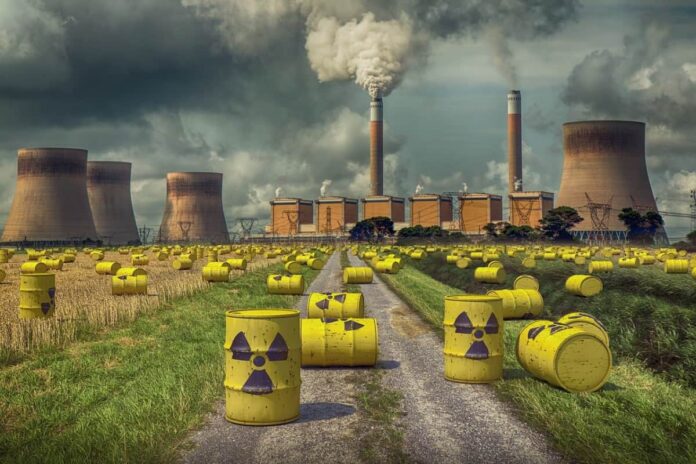LAGOS, Nigeria, May 2022/ — With hopes for countering global warming pinned on progress at the upcoming COP27 UN Climate Change Conference in Egypt, a new report from the Africa Finance Corporation (AFC), Africa’s leading infrastructure solutions provider, sets out the continent’s stance by balancing the need for emissions reduction with critical development imperatives.
The report, Roadmap to Africa’s COP: A Pragmatic Path to Net Zero, is set within a context where Africa has borne the brunt of the most devastating impacts of climate change, while contributing little to global emissions.
This low carbon output reflects Africa’s crippling energy deficit, which has stymied industrialisation and economic development. Africa, therefore, needs a realistic agenda for addressing climate change which allows the region to also continue advancing its industrial base.
“Africa is unlike any other continent when it comes to global net zero – and we need a blueprint for a common negotiating stance that reflects this,” said Samaila Zubairu, President and CEO of AFC. “We are advocating for consideration of Africa’s energy deficit and the need for quantum leaps in industrialisation for job creation and reducing poverty, as well as climate-proofing built infrastructure and protecting our powerful carbon sinks.”
The report argues that, while cutting emissions is vital for the more developed and highest polluting wealthier nations, there is a more limited universal impact to be gained from reducing the far lower emissions of sub-Saharan Africa. The report concludes that African nations will drive a far greater effect in combatting global warming by focusing instead on three significant areas of change.
- Localise
According to the report, Africa must focus on developing local industries by putting processing and manufacturing at the centre of sustainable circular economies. Doing so will eliminate emission-spewing shipments of Africa’s minerals and other commodities to Asia for manufacturing and processing, only to be shipped again as finished goods to consumer markets.
Achieving this objective requires closing Africa’s energy deficit. While renewable sources are the ultimate goal, in the near-term Africa must exploit its abundant reserves of natural gas. Since much of Africa is already at net zero, such development can be achieved without contributing substantially to global carbon emissions, while channeling harmful gas flares from oil fields and reducing the use of more polluting fuels such as coal, diesel and firewood. Resultant job creation and economic growth will enable African nations to invest further in renewable sources.
Especially important is creating local manufacturing of the components of renewable energy technology. It is critical for these metals to be mined in such a way that minimises further pollution and for resource-efficient sustainable mining techniques to be combined with ecosystems fostering local production centres.
- Re-build
Africa is the most exposed region to the ravages of global warming largely because its infrastructure is ill equipped to withstand climate shocks. Without intervention, the cost of structural damage caused by natural disasters in Africa will increase to US$415 billion a year by 2030 from between US$250 billion to US$300 billion now, according to the UN Office for Disaster Risk Reduction.
The continent needs strong and resilient building — to re-build ocean and river defenses, and infrastructure in transport, construction, electricity grids and off-grid energy, which will in turn help the development of sustainable mining and the circular economies that drive growth and job creation, according to the report.
- Finnovate
Key to effecting change is ensuring that Africa-based institutions such as the AFC get access to essential climate funds through financial innovation to support resilient building and investment in localised mass-scale manufacturing and processing. Financing is also needed to help preserve Africa’s vast carbon sinks, which absorb more carbon dioxide annually than any other region’s rainforests but are being depleted by local populations for firewood for cooking and heating.
Working with development finance institutions, governments and institutional investors, AFC’s many projects over the course of 15 years demonstrate that it is possible to mobilise financing at scale through crowding in private sector investment. Through leveraging financial input from governments and NGOs, we have the tools to de-risk climate investments and offer strong returns to incentivise funding from institutional investors. These efforts can help ensure that capital flows to the frontlines of the fight against climate change—Africa.
About Africa Finance Corporation:
AFC was established in 2007 to catalyse private sector-led infrastructure investment across Africa. It is the second-highest investment grade rated multilateral financial institution in Africa.
AFC’s approach combines specialist industry expertise with a focus on financial and technical advisory, project structuring, project development and risk capital to address Africa’s infrastructure development needs and drive sustainable economic growth.
AFC invests in high-quality infrastructure assets that provide essential services in the core infrastructure sectors of power, natural resources, heavy industry, transport, and telecommunications. Since its inception, AFC has invested over US$10 billion in projects across 35 African countries. www.AfricaFC.org








































